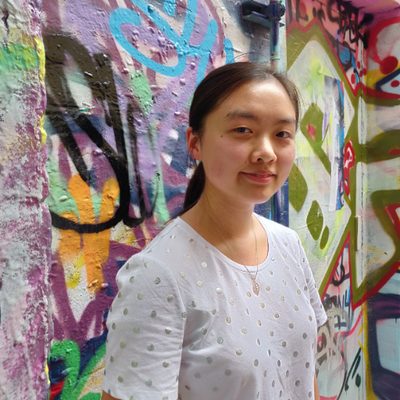There is nothing quite like that feeling of sitting down to write and staring into the white void for a half-hour. It’s a common frustration, especially when you’ve been incubating an idea for who knows how long and you’re itching to get it on the page. You’ve finally scraped together the time, abandoned all else, or decided to become a hermit – but all that comes out is either nothing or an unsalvageable, cringeworthy mess. While there’s the old adage that no writing is ever wasted, I personally don’t have the creative energy or time for the try-everything-and-see-if-it-works approach. For me, writing has always lingered in the spaces between work, family, study and life, quietly evolving in the background until I sense there is enough of a story to begin.

When I applied for the scholarship, I had a short story about a Chinese-Australian father with a sentient beard and didn’t know how to take it further. Even though I had sketched out possible scenes and storylines, I would write them and sense something was off; that perhaps a character didn’t come across as I had envisioned, or I couldn’t quite express all the emotional nuances in a scene. Writing a Novel Stage 1 gave me a toolkit of techniques and new ways to use and refine fundamental elements of fiction writing.
It was a very comprehensive and in-depth course on craft, and the skills I learned helped me understand how each sentence would contribute to a desired effect. The writing became much easier once my characters had been fleshed out and I knew how each scene would fit into their narrative arc. Had I not had any guidance, I would have taken much longer (with a lot more trial and error) to get to the core of my novel and realise the strengths and weaknesses of my writing. Instead, I could focus on honing my craft, and there were opportunities in each class to share my progress and receive feedback from my teachers and peers.
In Writing a Novel Stage 2, I learned to take a step back and read my work critically. In addition to delving deeper into the narrative skills developed in Stage 1, we focused on the anatomy and function of different kinds of scenes. This knowledge was useful for self-editing, especially for fixing up patches of writing that seemed inconsistent or misplaced. Other highlights across the two courses included meeting published writers and learning from their experiences and processes, hearing an editor and agent’s insights into the publishing industry, and getting professional feedback on pitching and presenting our works. The diverse and holistic nature of both courses made me appreciate the long road from inspiration to publication and showed me how to get there one step at a time.
The individual mentoring sessions were perfect for checking in and untangling any knots. Kathryn and Margo were kind, attentive and knowledgeable tutors, dedicated to bringing out the best in everyone’s work. I left the sessions feeling more motivated and confident in my novel and was relieved when they steered me away from potential pitfalls. Despite the transition to Zoom, our class grew close enough to exchange constructive feedback even outside of the sessions. One of the things I cherish the most is my buddy group; although the three of us are writing very different novels, it’s a tremendous help having people who are tearing out as much hair as you are to hold you accountable and offer their honest opinion. In these tumultuous times, the Writing a Novel courses were a much-needed source of stability, a gentle push to get things done, and a welcome respite from personal crises and the general disintegration of life as we knew it.
My experiences at Faber Writing Academy have taught me that there are three things a writer needs: patience, dedication and support. Whenever I became frustrated or distracted from writing, it was my peers and our eager anticipation of Tuesday nights that brought me back. I am incredibly grateful for the Academy’s generosity, the expert guidance of my wise and insightful teachers, and the boundless moral support of my peers, which have been invaluable to developing my novel, voice and craft. It’s been my privilege and pleasure to Zoom along this path with you!
Coco Huang
Applications for first round offers for Writing a Novel close on 30 November 2020.
Sydney: Writing a Novel with Kathryn Heyman and Margo Lanagan
Melbourne: Writing a Novel with Sophie Cunningham and Emily Bitto
Brisbane: Writing a Novel with Kristina Olsson and guests
Online: Writing a Novel with Carrie Tiffany and guests